
Yashoda Jayanti, a sacred and deeply revered observance in the Hindu calendar, will be celebrated on Saturday, February 7, 2026 , marking an auspicious day dedicated to Mata Yashoda, the divine mother of Bhagwan Krishna. This holy day invites devotees to immerse themselves in prayers, fasting, and spiritual devotion to honor the unparalleled love and nurturing nature of Yashoda. Many observe a fast and engage in chanting her sacred names, while others offer special prayers and rituals, all united in their heartfelt reverence for the beloved mother of the Supreme Lord. Yashoda Jayanti is a time to reflect on the importance of maternal love, compassion, and devotion, and to deepen one’s connection with the Divine through the cherished example of Yashoda’s selfless care for Bhagwan Krishna.
Significance & Importance of Yashoda Jayanti

Yashoda Jayanti is a deeply revered and spiritually enriching day in the Hindu calendar, celebrated for its profound ability to transform the heart and soul. This sacred occasion is dedicated to Mata Yashoda, the divine mother of Bhagwan Krishna, whose boundless love, nurturing spirit, and unwavering devotion are an eternal source of inspiration for devotees around the world.
The spiritual essence of Yashoda Jayanti lies in its ability to awaken the purest form of love and devotion within the heart. As the loving mother who cared for Bhagwan Krishna with unmatched tenderness, Yashoda's life embodies the deepest connection between the earthly and the divine. Ancient scriptures and timeless stories celebrate her role in shaping Krishna's early years, and by honoring her on this day, devotees seek to purify their hearts, strengthen their own nurturing qualities, and deepen their bond with the Divine. The prayers, rituals, and offerings made on this auspicious day align one’s spirit with the radiant love of Yashoda, bringing peace, compassion, and spiritual growth.
Yashoda Jayanti offers a beautiful opportunity to deepen one’s devotion and experience the power of divine love. Through prayers, meditation, and chanting Yashoda’s sacred names, devotees invite an awakening of selfless love, compassion, and a sense of oneness with the universe. This day serves as a reminder of the transformative power of motherly love and the importance of devotion to the Divine. It is a day to surrender with faith, embrace divine blessings, and journey toward spiritual fulfillment, guided by the eternal example of Yashoda’s boundless love.
Festival Date, Time, Muhurat & Tithi
Yashoda Jayanti will be observed on Saturday, February 7, 2026.
This sacred day falls on the 18th day of the Shukla Paksha in the Magha month, as per the Hindu lunar calendar.
Shashthi Tithi Begins - 01:18 AM on Feb 07, 2026
Shashthi Tithi Ends - 02:54 AM on Feb 08, 2026
Note: Devotees begin their Yashoda Jayanti rituals at sunrise, making it a key time for the day's observances. Sunrise and sunset vary by region and date due to India's geographical diversity. For exact timings, refer to local astronomical data.
Story Behind Yashoda Jayanti

One day, Bhagwan Krishna in his childhood was playing in the gardens of Gokul, and her mother, Mata Yashoda witnessed a beautiful display of nature's wonders-exotic flowers blooming around her, heavenly fragrances in the air, and birds singing the sweetest melodies. As she observed these blessings, she thought of her son Krishna and the immense love she had for him. In her heart, she realized that even the wonders of the heavens paled in comparison to the boundless love she held for her beloved child.
While she was lost in these divine thoughts, an unusual occurrence happened. A celestial being named Vashishta, who had been observing Yashoda’s devotion from the heavens, appeared before her. He blessed Yashoda and explained that her deep maternal love for Krishna was so pure and selfless that it was a form of devotion higher than any other. Vashishta proclaimed that Yashoda’s love was the purest form of bhakti (devotion), and by her love, even the gods and goddesses were inspired to love Krishna with the same intensity. This profound revelation filled Yashoda’s heart with even more love and reverence for Krishna, making her a beloved figure not only on earth but in the heavens as well.
Bhagwan Krishna continued, narrating that the love Yashoda had for Him was so pure that it transcended all worldly bonds and attachments. Her love was an example for all devotees to follow—a love that was selfless, unconditional, and unshakable. By observing Yashoda’s devotion, people could cultivate a love for the Divine that would lead them on the path to spiritual fulfillment and liberation.
This story of Yashoda Jayanti serves as a beautiful reminder of the immense power of a mother’s love and devotion. Even though Yashoda’s love was on earth, it resonated throughout the cosmos, inspiring all who heard her tale. The grace she received from Krishna and the merit of her unwavering devotion elevated her to a status of eternal reverence.
The celebration of Yashoda Jayanti, with prayers, fasting, and devotion, serves as an opportunity for devotees to connect with the Divine through the example of Mata Yashoda. By observing this sacred day, one can cultivate love, compassion, and selflessness in their hearts, just as Yashoda did. Through devotion to the Divine, one can experience profound spiritual awakening and the blessings of divine grace, just as Mata Yashoda did on this auspicious day.
How to Celebrate Yashoda Jayanti Festival?
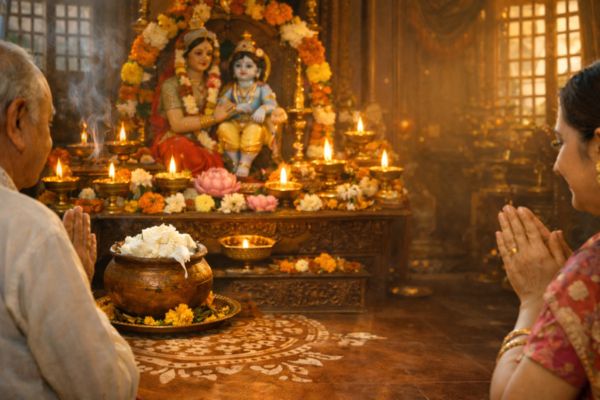
On this day, devotees perform a special puja for Mata Yashoda and Bhagwan Krishna, placing their images or idols on an altar and offering flowers, incense, and lighting a lamp. Chanting names like “Yashoda Maiya Ki Jai” and 'Hare Krishna' helps invoke the divine presence and strengthen one’s devotion. A unique feature of the celebration is offering Makhan (butter), symbolizing Krishna’s love for butter and Yashoda’s nurturing care.
Many devotees also observe a fast on Yashoda Jayanti, either by consuming fruits, milk, and water or refraining from grains to purify the body and mind. Satsang (spiritual gatherings) can be organized, where kirtans and devotional hymns dedicated to Yashoda and Krishna are sung, enriching the spiritual experience of the day. Meditation and silent prayer focused on Yashoda’s selfless love are also essential practices, helping devotees cultivate compassion and devotion in their own lives.
Acts of charity, such as donating food or clothes, are encouraged, reflecting Yashoda’s nurturing nature. Volunteering to help those in need also embodies the spirit of love and care central to this festival. Families celebrate by spending quality time together, sharing stories of Krishna’s childhood, and honoring mothers with flowers or prasad as a gesture of gratitude.
A holy bath during the Brahma Muhurta (early morning) is auspicious and purifies the body, preparing the devotee for the spiritual practices of the day. Homes and prayer spaces are decorated with rangoli and flowers, creating a joyful atmosphere, and lighting diyas symbolizes the divine light and blessings of Yashoda and Krishna.
In essence, Yashoda Jayanti is a time to reflect on divine love, express devotion, and strengthen one’s spiritual connection with Bhagwan Krishna. Through prayers, fasting, meditation, charity, and family celebrations, devotees honor Yashoda’s love and receive divine blessings for spiritual growth.
Yashoda Jayanti Festival Puja Vidhi (Puja Procedure)
Here’s a step-by-step guide to performing the puja on Yashoda Jayanti:
Preparation for the Puja
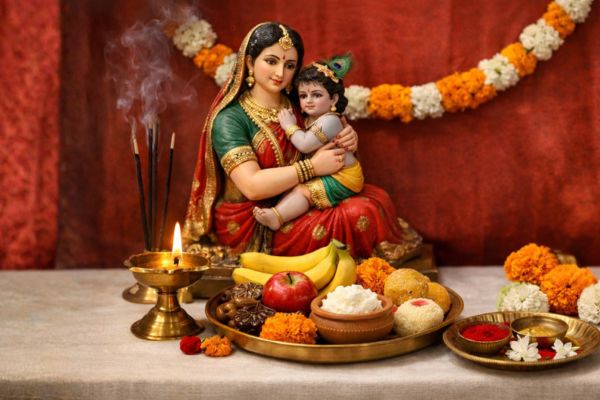
Clean the Puja Area: Begin by cleaning the space where you will perform the puja. Ensure that it is neat and tidy to create a sacred environment.
Set Up the Altar: Place a picture or idol of Mata Yashoda and Bhagwan Krishna on a clean platform or altar. Decorate the altar with fresh flowers, marigolds, or jasmine, and set up a small lamp or diya for lighting.
Gather Puja Materials
You will need:
- Fresh flowers (for offering)
- Incense sticks (agarbatti)
- A small lamp (diya) or candle
- Fruits, sweets, and Makhan (butter) for offering
- Kumkum (vermilion) and sandalwood paste (for tilak)
- A clean cloth or plate for prasad
Puja Procedure
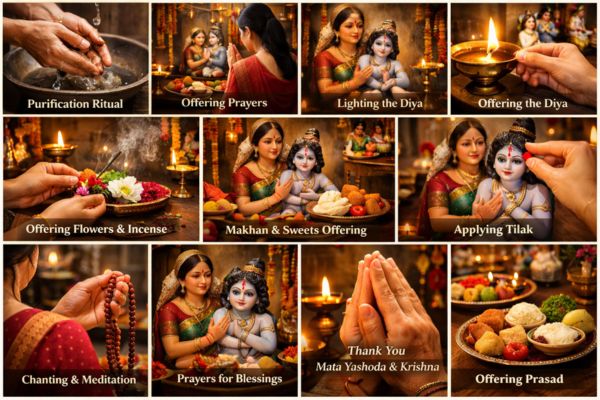
Purification: Start by washing your hands and feet to purify yourself before the puja. You may also choose to take a holy bath during the Brahma Muhurta (early morning) for extra auspiciousness.
Offer Prayers to the Deities: Sit comfortably in front of the altar, focus your mind on Mata Yashoda and Bhagwan Krishna, and offer a prayer of gratitude and reverence. You can chant the following:
'Om Shri Yashodaya Namah'
'Hare Krishna Hare Krishna, Krishna Krishna Hare Hare, Hare Rama Hare Rama, Rama Rama Hare Hare'
This chant invokes divine blessings and invites the presence of the deities.
Light the Diya: Light the diya or lamp and offer it to the deities while praying for light and wisdom in your life. As you offer the lamp, visualize the divine grace of Yashoda and Krishna.
Offer Flowers and Incense: Offer fresh flowers and incense to the deities while chanting prayers. Flowers symbolize purity and devotion, while incense purifies the environment.
Offer Makhan (Butter) and Sweets: Offer Makhan (butter) as it is symbolic of Bhagwan Krishna’s love for butter. You may also offer other sweet treats like kheer, laddu, or sweet rice to the deities, representing love and affection.
Apply Tilak: Gently apply kumkum (vermilion) or sandalwood paste on the foreheads of the images or idols of Mata Yashoda and Krishna as a mark of respect and devotion.
Chanting and Meditation: Spend a few minutes chanting the names of Yashoda and Krishna. You can meditate on their qualities, especially Yashoda’s selfless love and Krishna’s divine presence. Reflect on how you can cultivate these virtues in your own life.
Prayers for Blessings: Pray for blessings of love, compassion, and spiritual growth. Seek guidance from Mata Yashoda to nurture divine love in your heart and from Bhagwan Krishna to lead you on the path of devotion and wisdom.
Offer Prasad: After completing the puja, offer the prasad (fruits, butter, sweets) to the deities and then share it with family members or those present. Consuming prasad is believed to bring divine blessings.
Conclude with Gratitude: Finally, thank Mata Yashoda and Bhagwan Krishna for their divine presence and blessings. You can also offer a simple prayer, such as:
“Jai Yashoda Maiya, Jai Krishna”
Express your gratitude for their love and blessings.
Post-Puja Rituals
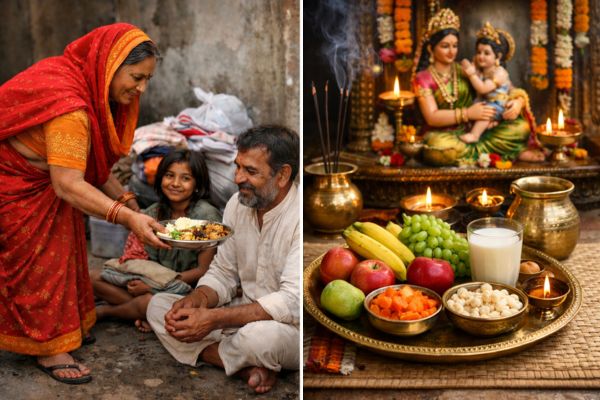
Charity and Acts of Kindness: It is customary to perform an act of charity after the puja, such as donating food, clothes, or money to those in need. This helps to cultivate the spirit of generosity and compassion.
Fasting: Some devotees may choose to fast on Yashoda Jayanti, either partially or by consuming only fruits, milk, and water. Fasting is considered a way to purify the body and focus the mind on devotion.
This puja procedure helps create a sacred and joyful atmosphere on Yashoda Jayanti, fostering devotion, love, and spiritual connection with the Divine Mother Yashoda and Bhagwan Krishna.
Yashoda Jayanti Puja Mantra
To seek blessings from Mata Yashoda, you can chant the following:
'श्री यशोदा मातरं प्रणमामि।
श्री कृष्ण के साथ सुखी जीवन का आशीर्वाद दें।'
Shri Yashoda Mataram Pranamami,
Shri Krishna Ke Saath Sukhi Jeevan Ka Aashirwad De.
Translation: 'I bow to Mata Yashoda, may she bless me with a life full of happiness along with Bhagwan Krishna's grace.'
Yashoda Jayanti Vrat Vidhi (Fasting Procedure)
_201825.jpg)
As per ancient traditions, to receive the full spiritual benefits of Yashoda Jayanti, devotees should adhere to the following practices:
Bathing on the Morning of Yashoda Jayanti: Devotees should take a holy bath early in the morning to purify themselves before engaging in any rituals or prayers.
Offering Special Prayers: The devotee should perform the puja with devotion and sincerity. Special prayers dedicated to Mata Yashoda and Bhagwan Krishna should be recited, focusing on their divine love and blessings.
Abstaining from Negative Influences: On this day, devotees are advised to avoid interacting with people who engage in sinful or negative activities. If such encounters happen by chance, purification can be done by offering prayers and seeking forgiveness.
Fasting and Simple Diet: Devotees observing a fast should refrain from eating grains and beans. A simple diet of fruits, milk, and other sattvic (pure) food is recommended. The fast should be observed with complete devotion, abstaining from unnecessary indulgence.
Avoiding Conflicts: Avoid arguments, conflicts, and any negative thoughts throughout the day. The focus should remain solely on devotion to Bhagwan Krishna and honoring the loving qualities of Mata Yashoda.
Spiritual Practices: Devotees should engage in chanting the holy names of Krishna and Yashoda, meditating on their divine qualities, and performing acts of charity or kindness to reflect the nurturing nature of Yashoda.
Physical and Mental Purity: It is advised to refrain from indulgence in any materialistic pleasures or distractions. Devotees should remain focused on their spiritual journey and embrace the love and wisdom imparted by Mata Yashoda and Bhagwan Krishna.
By adhering to these guidelines on Yashoda Jayanti , devotees can purify their mind, body, and soul, drawing closer to the divine blessings of Mata Yashoda and Bhagwan Krishna.
Yashoda Jayanti Vrat Katha (Traditional Fasting Story)
The Yashoda Jayanti Vrat Katha tells the divine story of Mata Yashoda, the beloved mother of Bhagwan Krishna, and how observing a fast in her honor can bring blessings and spiritual benefits.
The Story of Mata Yashoda’s Devotion

Once, in the beautiful city of Gokul, there lived a humble and loving woman, Mata Yashoda, who was married to Nanda Maharaj. Despite being the queen of Gokul, Yashoda led a simple life, devoted to her family and the welfare of the people. The most cherished part of her life was her beloved son, Bhagwan Krishna, whom she lovingly nurtured and raised.
One day, the celestial sage Narada Muni visited Gokul and observed the immense love Yashoda had for Krishna. He was moved by her maternal affection and devotion toward her son. In admiration, he approached Yashoda and asked, 'Mata, do you know who your son really is? He is not an ordinary child, but the Supreme Bhagwan Himself, the source of all creation.'
Yashoda, however, did not believe Narada Muni's words. To her, Krishna was simply her beloved child, and she cared for Him with the love and tenderness of any mother. She continued to feed him butter, take care of his needs, and protect him, unaware of his divine nature. Narada Muni smiled, seeing her pure devotion, and he promised that her love would be recognized by the heavens, and she would be honored for her selfless devotion to Krishna.
According to the Vrat Katha, those who fast on Yashoda Jayanti should offer prayers to Mata Yashoda and Bhagwan Krishna, chant their divine names, and meditate on their divine qualities. By following the fast with devotion and abstaining from grains, beans, and other distractions, devotees purify their hearts and minds, inviting divine blessings into their lives.
The Yashoda Jayanti Vrat Katha is a beautiful reminder of the selfless love and devotion of Mata Yashoda, whose unwavering faith and nurturing love for Bhagwan Krishna are honored by devotees around the world. By observing the fast and following the rituals on this auspicious day, devotees not only connect with the divine mother but also purify their hearts, receiving divine blessings that guide them on the path to spiritual fulfillment.
Shri Krishna Puja Mantra Jaap

Bhagwan Krishna is a perfect guide, friend, lover, son and child, he taught mankind to walk the path of truth. Bhagwan Krishna was born to Devaki and Vasudeva to provide enlightenment to the mankind. The Omnipotent Bhagwan Krishna is considered as the Supreme Being who revealed his Vishwaroopa to Arjuna during Mahabharata. Bhagwan Krishna provides it’s devotees with protection, knowledge and liberation.
Rudra Centre Puja Services is the oldest and most trusted Online Puja Services provider in the world. Over 20 years we have organized Yagnas, Pujas, Homas and Kathas like Ati Rudra Mahayajna, Sahasra Chandi Homa, Akhand Ramayan Paath, Shiva Maha Puran Katha, 4 Prahar Mahashivratri Mahapuja with teams of 100’s of curated priests for the benefit of mankind and our global clientele.
Siddh Meru Krishna Yantra

This Yantra is designed as per authentic texts with accurate geometry of steps beginning with circle followed by coinciding two lotuses with eight petals ascending to circle that ultimately leads to two reversed triangles for the convergence of the individual soul with creative energy of Bhagwan Krishna.
10 Mukhi Rudraksha
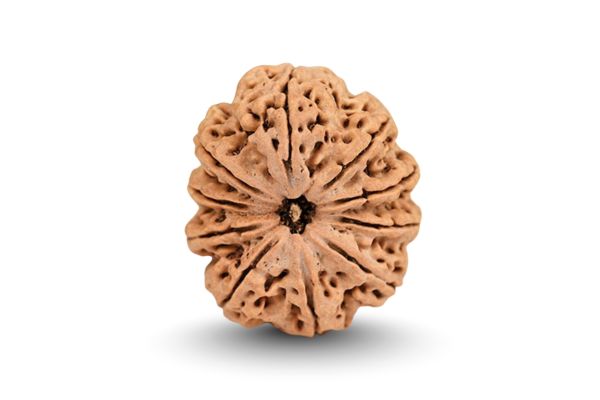
The 10 Mukhi Rudraksha it is associated with joyfulness, positivity and protection. It neutralizes negative energies around and pacifies the malefics of all nine planets or Navgraha. The 10 mukhi rudraksha is ruled by Bhagwan Krishna, the supreme protector personified. The wearer of 10 mukhi Nepal rudraksha move through life without being influenced by negative people and situations.
Conclusion
Yashoda Jayanti is not just a celebration of a mother’s love, but a powerful reminder of the selfless devotion and nurturing qualities that transcend time and space. Mata Yashoda’s unconditional care for Bhagwan Krishna, her unwavering faith, and her humble service to the divine are qualities that every devotee strives to embody. On this sacred day, when we observe the fast, chant prayers, and immerse ourselves in the devotion to Krishna and Yashoda, we are not merely honoring a mother of the past but connecting with the universal energy of love and compassion that continues to guide us.
By observing Yashoda Jayanti with sincerity, we open our hearts to divine blessings, inviting peace, prosperity, and spiritual awakening. This day serves as an opportunity to reflect on the nurturing power of love, the beauty of motherhood, and the eternal bond between a mother and her child — a bond that holds the power to transform lives. Let us embrace the spirit of Yashoda Jayanti, nurturing our souls with devotion and gratitude, and drawing closer to the divine blessings of Bhagwan Krishna and Mata Yashoda.


-in-Astrology.jpg)
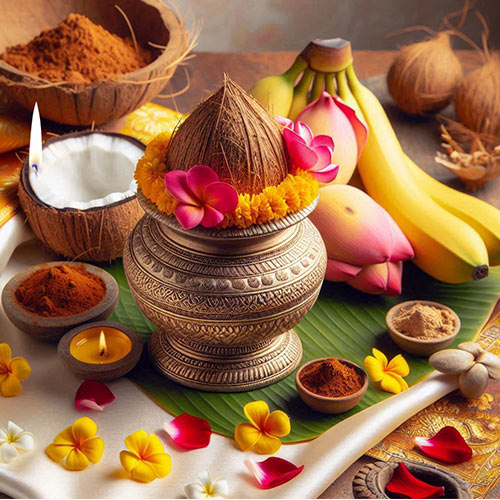
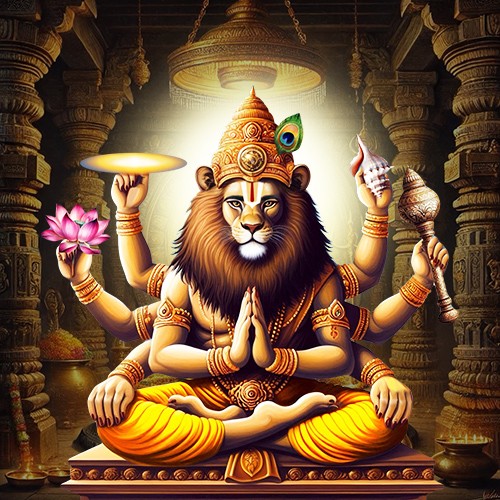

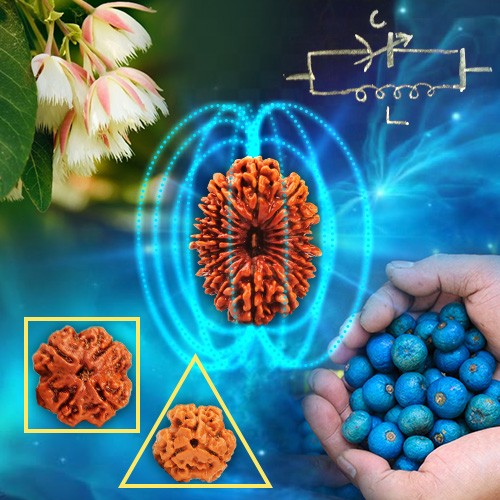

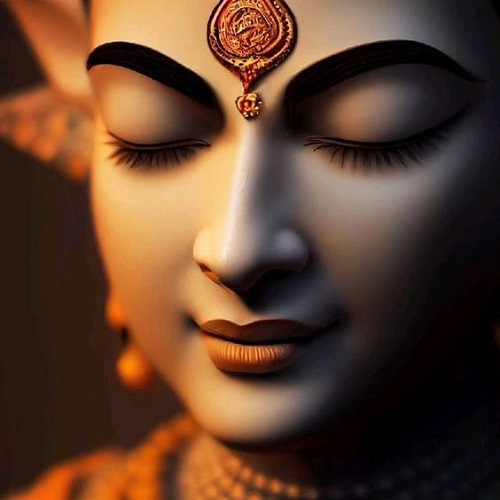
.jpg)
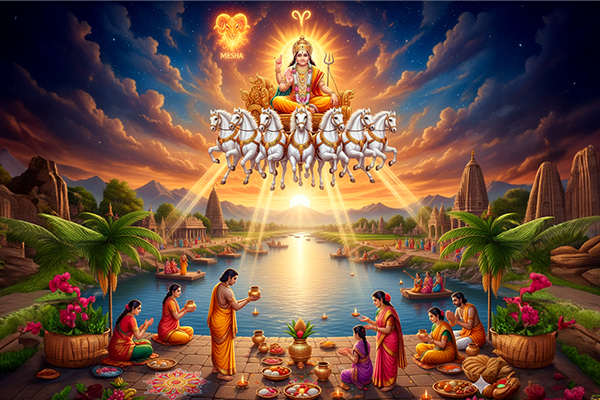

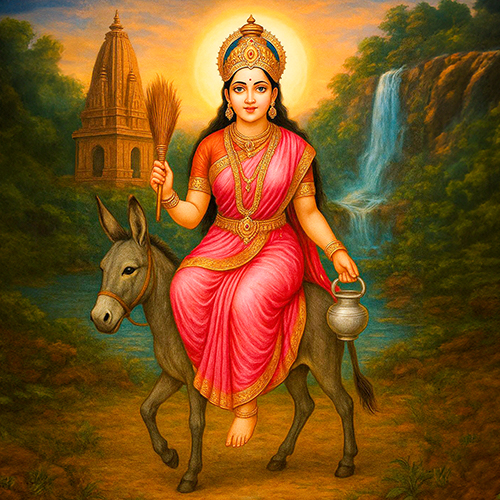
Comments 0
Leave your thought here